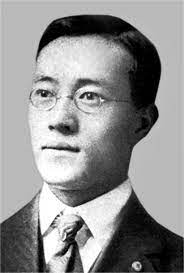Tsou Lu (2 February 1884-13 February 1954), conservative Kuomintang leader who became chancellor of National Chung-shan University (1932-39) and leading authority on the 1911 revolution and the early history of the Kuomintang. A native of Tap'u, Kwangtung, Tsou Lu was born into a poor Hakka family. His father reportedly was a tailor and a peddler. […]









